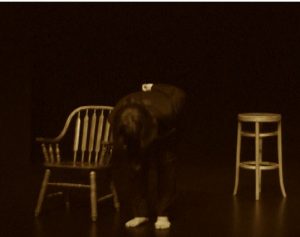Disinhibition: Brain Injury Not Cool
Lethan Candlish Part Five
Lethan, like many teenagers, was trying to develop into a cool person. This is normal adolescent behavior and part of our development as humans. The frontal lobes develop with our experiences, creating lifelong patterns of motivation and personality. Trying the gain the esteem of our peers is so much a part of our development from age 10 to 25. Unfortunately, Lethan’s brain development was disrupted by the car crash, robbing him of many of his normal functionings. One of the problems we see is what we call disinhibition.
The frontal lobes are a largely empty space where the brain can store the very complicated programming of “coolness,” the end result being maturity. Because of Lethan’s severe brain injury, his programming for “coolness” was largely erased, causing disinhibition. Lethan explains his challenge with this in his performance of Who Am I Again? His best friend Ryan said that it was difficult to hang out with Lethan. He was being told how to respond to his different actions. He would go from laughing to yelling then back to laughing at the drop of a hat. It wasn’t the old Lethan who was laughing. It was this new sort of laugh. “It sounded almost like a donkey bray,” Ryan said.
Among his friends, he was given the nickname “the gimp.” He admitted that he was worthy of that nickname.
“I mean, I couldn’t talk right, I couldn’t act right, I couldn’t laugh right. I was,” he said in his performance of Who Am I Again? “But at least I was someone.”
He also said that this became his excuse whenever he made a mistake. He would say, can’t blame me, I’m a gimp. His friends would laugh, he said, and he would bray along with them. He wasn’t the self he was before the injury, and he recognized that. He knew that his laugh was not the same. “I would laugh uncontrollably at times, often with that donkey bray sort of thing,” he said. His friends started to call his raspy laugh the “gimp laugh.” So his self-esteem took a hit.

Lethan takes a bow, imitating his action at the graduation, in his performance of Who Am I Again? Not having a filter for his words and actions is called disinhibition.
What Lethan was experiencing disinhibition and other executive functioning problems. This phenomenon is not just the loss of knowing what is cool, but it is the inability to stop the words and behavior before are shared. One of the most troubling aspects of these type of frontal changes is the two seconds too late realization that you did it again. The key to humor is timing and nuance. Lethan loses his confidence in his realization that he had lost his sense of timing.
He describes walking across the stage at his high school graduation. He lived in a small town, so everyone knew about his accident, his coma and his brain injury. When he walked across the stage at graduation, the audience started to applaud. In fact, he received a standing ovation from the audience. The theatrical part of him engaged. He took a bow at the end of the stage. The audience laughed. “I was alone. I was tired. I was afraid,” he said.
The audience laughing was another hit to his self-esteem.
See our next post about neurobehavioral extremes.